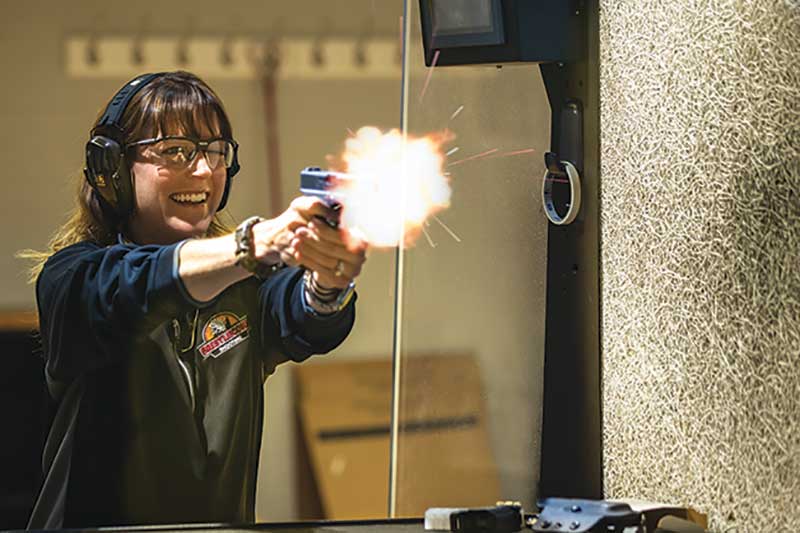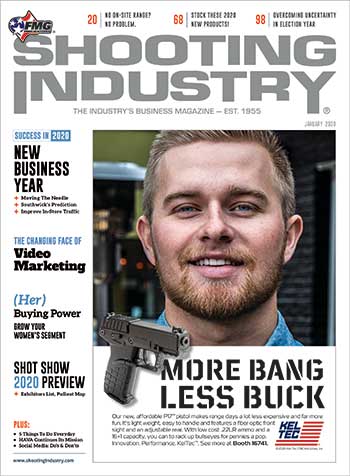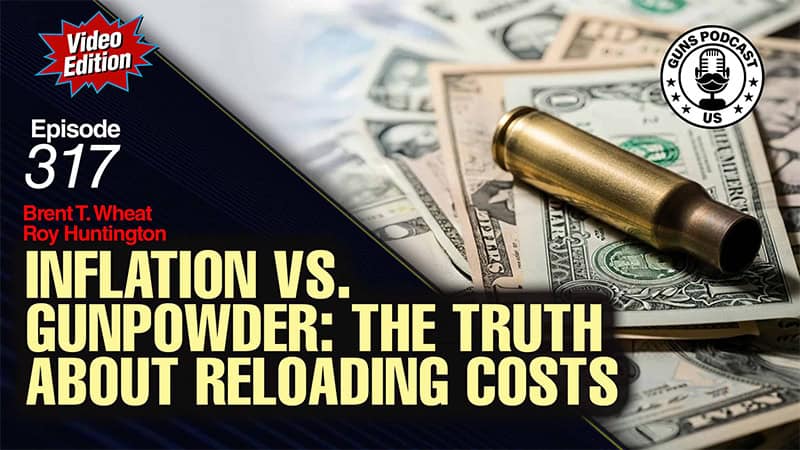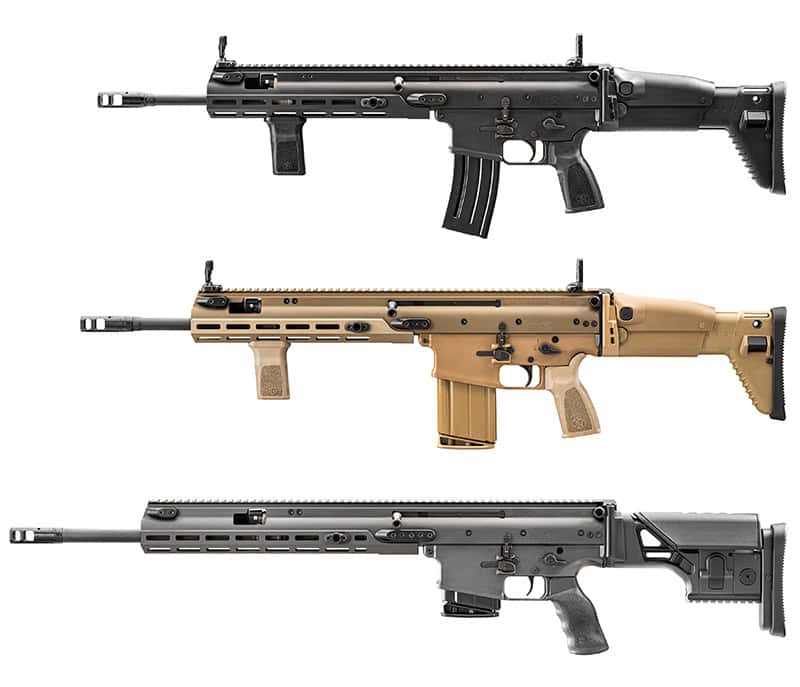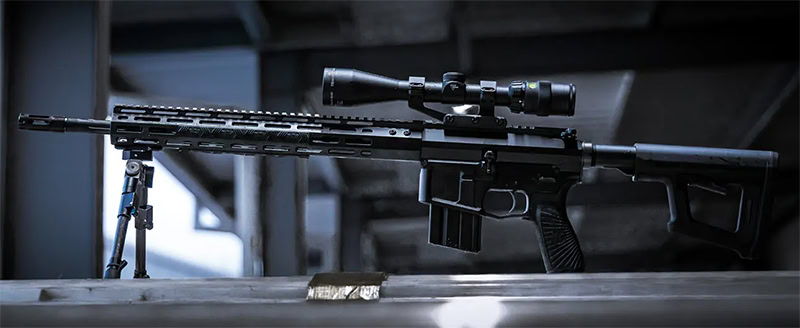So, Your Shop Doesn’t Have A Range?
In recent issues of Shooting Industry we’ve written on a number of gun shops that have expanded their business operations to include indoor shooting ranges open to the public. This also facilitated another income stream: firearms training sponsored by the shop.
Some of our readers read those articles and thought, “Good for those folks, but location factors, zoning issues, capital investment concerns, etc., just don’t make a range feasible for my operation.”
Understood. The great majority of retail gun shops do not, in fact, have ranges on the premises — and most of them do just fine. However, it doesn’t mean standalone stores can’t tap into more profits from training.
Let’s look at some of the ways a creative dealer can make it happen.
Training Without An On-Site Range
From concealed carry permit courses to advanced self-defense and shooting courses, the lack of an on-premises live-fire range of your own is not an insurmountable barrier. Ernie Traugh owns Cedar Valley Outfitters in Marion, Iowa. His shop is dedicated retail, but he regularly teaches classes and hosts outside instructors as a significant part of his income stream. Traugh’s strategy is to rent local gun clubs and, for lecture-only classes, a local American Legion hall. This has kept his shop, located in a strip mall, profitable and competitive with a nearby multi-million dollar combination gun shop and indoor shooting range.
In Live Oak, Fla., we find the Pro Arms Gun Shop, owned by John and Terri Strayer. Competitive shooters themselves, the Strayers own an elaborate multi-bay shooting range on property just outside town. Once a month, they and their highly qualified gun shop staff hold a concealed carry permit class. The employee break room at the shop becomes a classroom for the lecture portion, and then they and the students caravan the short distance to the outdoor range. The shooting portion takes place there.
They use the same approach when they host one- and two-day shooting courses. The curriculum includes carbine as well as handgun, going out to 100 yards or more. Avid competitors in action shooting sports such as United States Practical Shooting Association (USPSA) and International Defensive Pistol Association (IDPA), they’re also set up for “Introduction To IDPA” classes. The Strayers and their staff having won multiple state and regional championships, so their connections and reputations have the credibility to bring in students.
The Strayers also sponsor stages at major matches in Florida and Georgia. In turn, this exposes their services to a broad array of enthusiasts who would normally be far outside their geographic customer range, bringing in new business for both training and regular gun shop sales.
Providing Ammo For Training Courses, Matches
If you haven’t already, put your finger on the pulse of local gun clubs that sponsor or host shooting classes or shooting matches. The students will need ammo, and the farther they travel to the event the more desirable it is to acquire their ammo there on the ground instead of shipping it. If the student is flying in, FAA and TSA limit commercial air passengers to 11 lbs. of ammunition — not enough for most shooting classes or big matches. Talk with the hosts and find out what sort of ammo their students are likely to need, and then offer good prices on volume ammunition for them.
Typical classes work in 500-round increments of ammunition allotments. The volume will depend on the curriculum. A 40-hour class focusing on legal aspects and/or tactics may only require 500 cartridges. An intensive class devoted to pure shooting may go a 1,000 rounds per day, per student. Many students make training a family affair. (As an aside, when my wife and I attended one advanced pistol school we went through almost 6,000 rounds between the two of us!) This sort of shooting volume adds up. Students traveling to a class generally arrive a day early, and it’s no problem for them to stop by your shop the day before the shooting starts to pick up their ammo.
If you haven’t already, put your finger on the pulse of local gun clubs that sponsor or host shooting classes or shooting matches.
It’s a convenience for the students, and for the instructors and hosts you’ll be working with. They have their hands full getting people registered, the range set up, etc., and many don’t have the space at their own facility to store large quantities of ammo for sale. Instructors in this situation are delighted to have you, the local dealer, remove this particular thorn from their paw.
The same is true as a rule for sponsors of major shooting matches. You just have to reach out to them, find out what sort of ammo in what volume they require and print up some leaflets and provide a contact at your place so attendees can place their orders. Make sure you allow for order time so you can have the ammo on hand when they arrive to shoot. A bonus is this brings in customers who wouldn’t usually have occasion to be at your shop, and another sales opportunity for guns and accessories from people who tend to buy in volume. If you have something they want and can’t find at home, they’ll have no problem paying you to ship a gun to their local FFL dealer.
No Local Ranges Available?
There are some instances where dealers who don’t have ranges of their own simply can’t find another at which to offer hands-on shooting instruction. The reason might be urban encroachment or local range schedules already too full to allow for any more classes. This doesn’t put relevant training income off the table.
Some dealers offer classes in topics like handloading. (I’ve seen them set up at venues ranging from gun shows to local community colleges.)
How about lecture classes in home security, or self-defense law? Crime prevention officers from your local police department or sheriff’s office can teach the former, and local attorneys who specialize in this area can teach the latter. And of course, many gun-shop owners or members of their staff are qualified to teach in these areas. If your shop doesn’t have a classroom on premises, I’ve seen gun dealers rent church meeting halls, Lions Clubs, etc. for this purpose. We’ve taught such classes at fire department and police department training rooms, as well.
There are also hotel conference rooms to be rented. If your class goes more than a day, most hotels will offer a discount for students coming into your town for the program if you can fill X number of rooms for them.
Training can provide income streams for gun shops, even if the shops in question don’t have shooting ranges of their own.
What other suggestions would you add here? We want to hear from you! comments@shootingindustry.com

